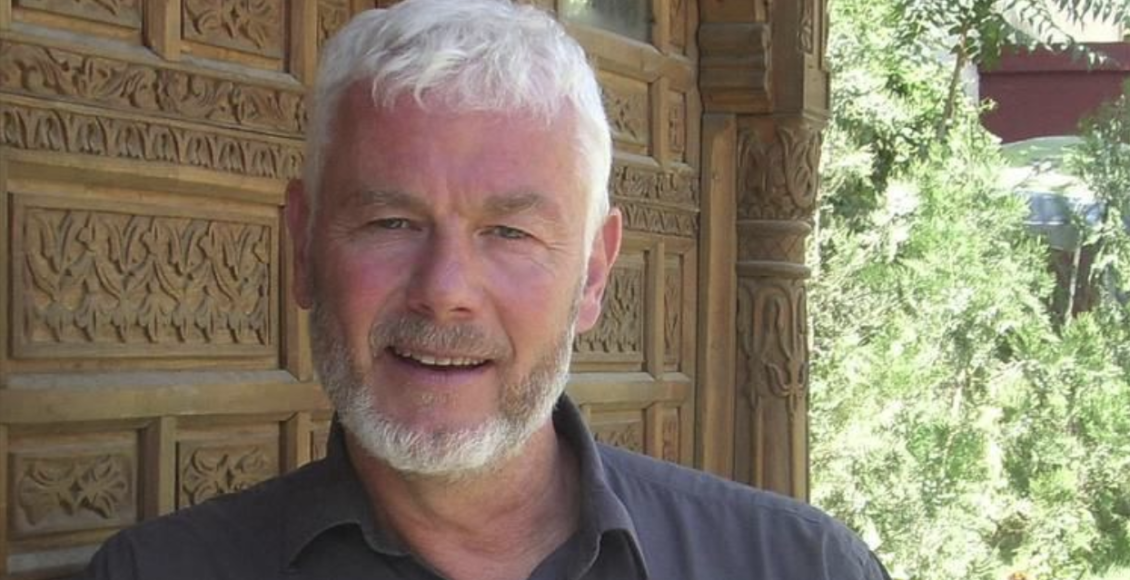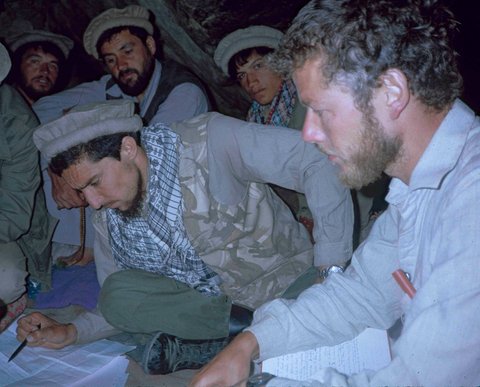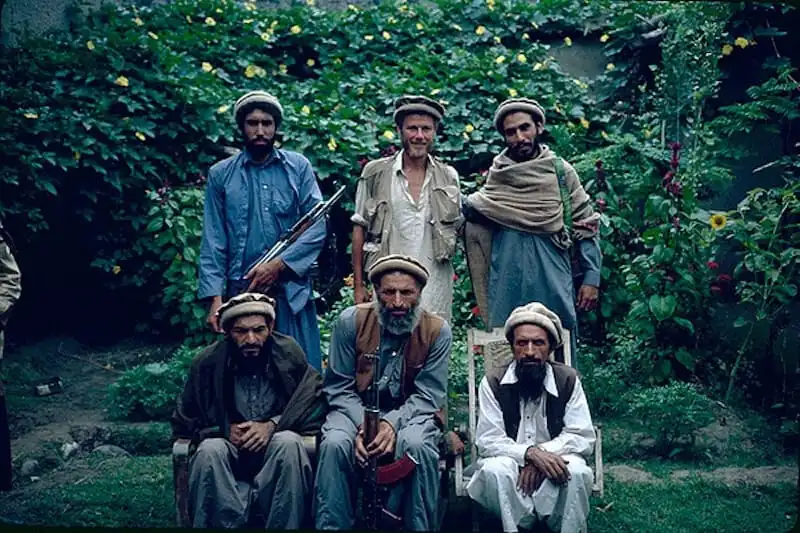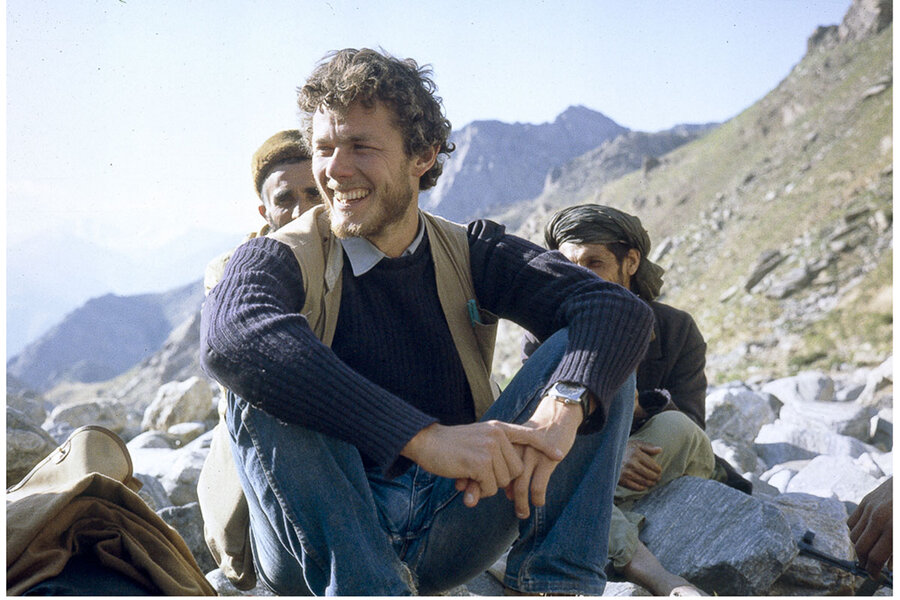The Pursuit of Transparent Journalism In The Midst Of Authoritarianism – A Discussion With War Correspondent Edward Girardet

In our hyper-globalized and online world, quality journalism is at risk of disappearing. I turned to Edward Girardet, an award-winning Swiss-American journalist, correspondent, editor, producer, and author to provide some insights on transparent journalism and the future of credible reporting. He has covered humanitarian crises and wars worldwide for over 40 years. Most notably, he began covering Afghanistan several months before the Soviet invasion in 1979 and continued to do so for more than 35 years. Whether it’s sneaking across borders, making his way to the frontlines of the Sri Lankan Civil War, or even encountering Osama bin Laden multiple times, Girardet has dedicated his career to the pursuit of transparent journalism. His adventures have led him to work on subjects ranging from the war in Angola to lost tribes in Western New Guinea to environmental issues around Africa. Having worked with NBC News, PBS NewsHour, US News & World Report, and The Christian Science Monitor among others, he continuously works to push for quality foreign reporting. He actively encourages international organizations, donors, and other key players to support credible local and international media to make international aid and conflict resolution both accountable and transparent. To read more about Edward Girardet’s expansive career, please follow this link.
This interview took place on the 25 of February 2025. It has been transcribed and edited for length and clarity since.
Maisie Wynd Smith: From your experience, in what ways do you believe transparent reporting and investigative journalism are so imperative in exposing authoritarian movements, particularly in conflict zones?
Edward Girardet: For a long time, I think foreign reporting was crucial and still is crucial now. But there was this position up until the early 2000s, where it was really needed. This is regardless of whether it’s economic situations or crises in certain countries – Uganda, Afghanistan – you name it. What the foreign correspondent could do is go and report on situations, and take far less risk than a local reporter. Oftentimes we’re criticized when people say “Well, why do you have to report? Why don’t you have local journalists? Give them the opportunity to report”. What people don’t understand is that very often, a local journalist has far more constraints than a foreign correspondent. We have three options: the government can kick you out, they can imprison you, or they can kill you – most often they just kick you out. Whereas a local reporter could get beaten up, get killed, his family can come under pressure, or they can get fired. The role of a foreign correspondent means that we always are in touch with local journalists, constantly talking to them. In many ways, we are the conduit for a lot of these reporters to get their stories out. So, I think the foreign correspondent has a very crucial role to play, because we can actually do far more than a local reporter, and we take much less risk. This being said, foreign reporting is or can be very, very dangerous.
Often too, what you notice in a lot of countries like Pakistan, Kenya, or Uganda is that local newspapers will not actually say something themselves. They won’t say “So and so of Uganda is extremely corrupt.” They will say, “According to the BBC…”. In doing so, they don’t take any responsibility. Of course, what a lot of governments do is they will then cut the BBC or prevent one from doing that sort of reporting. In times of crisis, very often the BBC, Voice of America, Deutsche Welle, or Al Jazeera will have their access by countries go up because people cannot rely on the local press.

When I was based in Paris, I was covering Africa and Asia. I picked and chose what I wanted to do. I basically had the dream job of a correspondent, and my editor was great. He would say “Isn’t it time you went back to the Horn of Africa to Somalia, to Ethiopia, to Djibouti?”. Not because something was supposedly happening, but because the monitor felt that part of its responsibility as a newspaper was to cover a story which might not necessarily be in the news. So, I would then go back to Mogadishu, to Addis Ababa, to Djibouti, where I would look around and always find stories. The monitor wanted consistency, and very often the biggies like CNN, Fox, or MSNBC – you name it – will only go where the stories explode. For example, in Gaza, the Israelis have basically forbidden any foreign correspondents from reporting inside the Gaza Strip.
This is not surprising and is often the case, even during the Gulf Wars 1 and 2. The American Forces and Coalition forces tried to control access as much as possible, and this is where they have “embeds” – embedded journalists. The argument they use is that they’re responsible for your safety, and therefore you have to stay with them. I personally have always refused to. I’ve gone as a so-called embed, but I didn’t sign any contracts.
I once went in as a “fly on the wall” with a friend of mine from the World Bank who was going to Helmand, Afghanistan. He said, “Why don’t you come along as an advisor?” He basically wanted to give me access. I went with him and kept it very quiet that I was a journalist. I just said that I was a writer. The interesting thing is that we went to one of the towns outside Helmand with American and Danish soldiers. We went into the village and the American Colonel said, “Look, we’re on very good terms with the locals”. We would walk around the marketplace bazaar – but we would always have guns with us. I mean, they were soldiers. They would meet with the locals and talk with them. Although these locals – I personally knew very well – would meet at night with the Taliban. They were no dummies; they had to maintain good relations with both sides. So, by day they were talking to the Americans and by night they were talking to the Taliban.
You have to be aware of this as a journalist. Very often, I found that the people who would embed were cutting themselves off from the local people. During the Soviet war, we went in with the guerrillas. We came in and went as we pleased. No one was controlling us. The Afghans were not sophisticated enough to know. They just said, “Want to come with us?”, and we took the same risks they did. But this meant you had the opportunity to report as you wanted to report.

Another example: I was in Montana, in Bozeman, at the university, and I was giving a talk on the role of foreign reporting. And I probably had about 500 people in the audience. There was one guy who said “You’re saying foreign reporting is important. Why? Why should I care about foreign reporting?” I said “ Well, I’ve done my homework before coming here. I drove from Seattle to Montana, and I saw two massive trains—freight trains—along the way, and they were carrying copper from Montana to Seattle. I knew that the copper would also go to China, exported onwards. You here in Montana, have basically two resources: You have cattle and you have copper. But you need to be aware of what’s happening in the world. If you don’t familiarize yourself with what’s happening and with foreign reporting you will suffer. Right now, the Chinese are investing in Zambia, which is one of the biggest copper places in the world, and they’re also building a copper mine in Afghanistan, which will be the biggest in the world when they finish. What do you think is going to happen if they get a better deal with the Afghans and the Zambians? They’re going to drop your copper like a hot potato, and jobs will be affected. So if you are not informed, and you lose your jobs, that’s your fault because you’re not bothering to make the effort to inform yourself.” So my advice is that we need foreign reporting because economically if you’re more savvy about what’s going on elsewhere in the world, through quality foreign reporting—which you’re not going to get on social media—you will suffer much less.
MWS: What you’ve said so far touches on the importance of social capital, social networks, and civil society. Would you say it’s being able to get both governmental and civil society information that makes a good foreign reporter? Which would you say is more important?
EG: Both—you need everything you can get. I’ll tell you how it often works as a foreign reporter. I once went to Algeria, and I didn’t know Algeria very well. So, I contacted some of my friends from the Washington Post, who gave me a lot of contacts, and I flew over. The first thing I would normally do when I arrived was go to see different embassies. I would also see the political attaché. I would go see the Americans, the Germans, The Brits, the Egyptians. I’d always try and get a mix of what we then called “first world” or “third world”. You’d always say, “Who should I go talk to?”, and they would always give you four or five suggestions of who else to go and see.
You might go see a professor at the local university, or you might go see someone who runs a company and has very good insight, or someone who is involved in agriculture or something. I would write nothing for three or four days. I would just go around and talk to people. I’d walk into the marketplace or shops. Very often local NGOs, grassroots organizations, teachers, and missionaries would also give you insights into what governments were doing because they ran clinics, they ran hospitals, they ran schools, and they ran farms. They were very, very close to the Earth. That was one way of getting in through a back door.

In countries where there’s very tight vigilance by the government, I’d always go to the barber once a day and have a trim because barber shops are a great place to meet and talk to people. A great example would be Baku, Azerbaijan, which was under very tight restrictions by the regime. In this context, people would talk to you, but they wouldn’t be so frank. I went to this one barber who was quite outspoken. He said, “Look, the way it happens in Azerbaijan, the government doesn’t arrest you if you speak out. What happens is you may suddenly find that the contract on your apartment is annulled, or your daughter’s going to medical school and she suddenly loses her place” – very subtle pressures, which are not overt. So, it’s difficult to say, “Oh, the government did this.” They always cite financial reasons or economic reasons. Oftentimes in other countries, they would just simply arrest you and beat you up, which is a different form of pressure.
So, you have to see who’s who in which country, and go with recommendations on who to see, who to trust, and who to talk to. You can very quickly put together a picture of what’s going on. But, there’s also the old adage amongst journalists – you can always write about a place if you’ve been there for four days or four years, but not between. If you go there for just four days, very often you think, “Oh, I understand what’s going on – I’ve talked to all these people, this is it”. Then, the longer you remain, the more complicated it gets, and it may take 3 or 4 years before you really begin to understand what’s going on.
So, when you go in as a foreign correspondent, you need to talk to as many different people as possible. The idea is really to try and put the pieces together. I remember one of my mentors in Paris for the New York Times once said, “I always try to report every two or three days, do a piece, and by the end of the year, I want to have all my articles stand out as a mosaic of what’s going on”. So, there’ll be social pieces, cultural pieces, and economic pieces. When you put them together, you have this fabric of stories, and I think that’s a very good way of describing how to look at a country, a region, or situation.
Feature photo: Courtesy of Edward Girardet Archives
Edited by Parham Haghnegahdar
